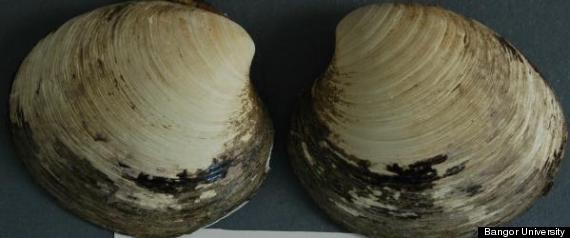If the elderly deserve respect, scientists didn't show much in 2006 when they killed the world's oldest animal. To be fair, they didn't know it was the world's oldest at the time.
But seven years later, researchers have determined that Ming the clam, an ocean quahog, or Arctica islandica, was actually 507 years old -- 100 years older than previously estimated. That makes the clam "the longest-lived [multicellular] animal so far reported whose age at death can be accurately determined."

Ming's shell measures 3.42 inches long, 2.85 inches high (with a max height of 3.23 inches) and 1.89 inches wide.
Ming, so named because it was born in 1499 in the middle of China's Ming Dynasty, was around for everything from the European colonization of the Americas to the launch of Twitter. Shortly thereafter, scientists with Bangor University in the United Kingdom dredged up the clam from coastal waters near Iceland, then opened it to conduct research, which killed it.
Using Ming and other clam shells they've collected, the Bangor scientists are looking at changes in environmental conditions, including seawater temperature, salinity and food availability, over the past several hundred years. Rings on the shells, called growth lines, help scientists determine the age of the clams. The shells' chemical composition reveal clues about the environmental conditions the animals lived in.
“Our research is providing unique data on the way in which climate change is influencing the ocean," the group said in a written statement. "What our technique offers is a means of revealing sea temperatures from year to year from the period before instrumental records were available.”
And while that technique sadly means Ming may have met a premature end, researchers are fairly sure "longer lived individuals of the species remain to be found."
"We caught a total of 200 ocean quahogs on our Iceland expedition," Paul Butler, one of the study's lead authors, told Science Nordic. "Thousands of ocean quahogs are caught commercially every year, so it is entirely likely that some fishermen may have caught quahogs that are as old as or even older than the one we caught.”

